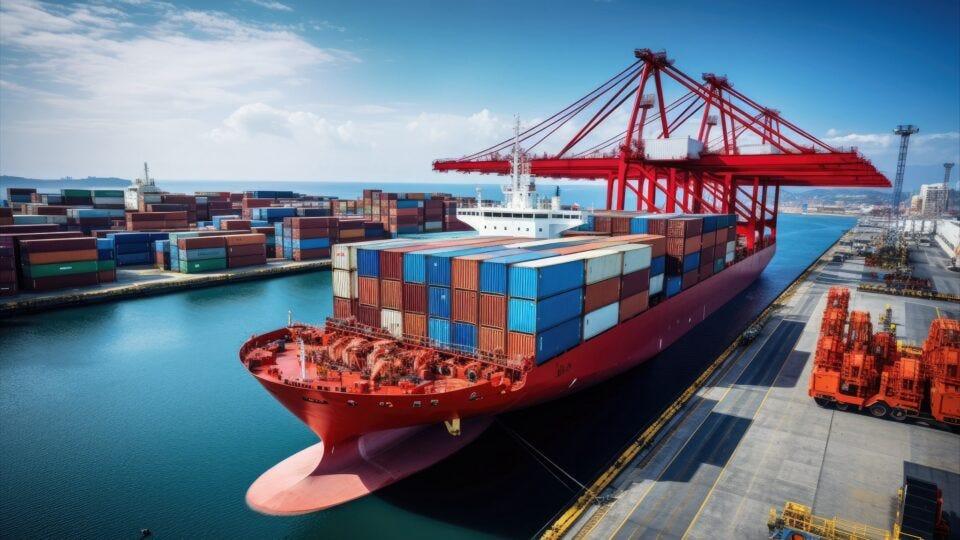Singapore is a global hub for trade and commerce, strategically positioned to facilitate international trade. For businesses engaged in importing and exporting goods, understanding the regulatory framework and compliance requirements is crucial. This article provides a comprehensive overview of the import permit declaration and export permit procedures in Singapore, detailing the processes, requirements, and relevant regulations that govern these activities.
Import Permit Declaration
Definition and Overview
An import permit declaration is a mandatory document that businesses must obtain before importing goods into Singapore. This permit ensures that all imports comply with local regulations, including safety, health, and security standards. The process is managed by Singapore Customs and other relevant government agencies.
Types of Import Permits
Inward Declaration: This permit is required for goods imported into Singapore for local consumption or re-export.
Transshipment Permit: Needed for goods passing through Singapore without entering the local market.
Temporary Import Permit: For goods imported temporarily for specific purposes, such as exhibitions or repairs, and intended for re-export.
Application Process
Registering as a Trader: Before applying for an import permit, businesses must register with Singapore Customs as a trader. This involves obtaining a Unique Entity Number (UEN) and subscribing to the TradeNet system, which is the electronic platform for trade declarations.Cargo Clearance Permit Singapore
Classification of Goods: Accurate classification of goods using the Harmonized System (HS) code is essential. This classification determines the duties, taxes, and permits required.
Applying for the Permit: The application is submitted via TradeNet. Businesses need to provide detailed information about the goods, including the HS code, value, quantity, and country of origin. Supporting documents such as invoices, packing lists, and certificates of origin may also be required.
Assessment and Approval: Singapore Customs and other relevant authorities review the application to ensure compliance with all regulations. This may include checks for prohibited or controlled items.
Payment of Duties and Taxes: Once the permit is approved, businesses must pay any applicable duties and Goods and Services Tax (GST). The permit is only valid after these payments are made.
Customs Clearance: Upon arrival of the goods, the importer must present the approved permit to Singapore Customs for clearance. This involves inspection and verification of the goods against the declared information.
Key Considerations
Compliance with Regulations: Importers must ensure that their goods comply with all local regulations, including health, safety, and environmental standards.
Documentation Accuracy: Accurate and complete documentation is critical for smooth processing and approval of import permits.
Timely Application: Import permit applications should be submitted well in advance to avoid delays in customs clearance.
Export Permit Procedures
Definition and Overview
An export permit is a document that businesses must obtain before exporting goods from Singapore. This permit ensures that exports comply with local and international regulations, including security, trade sanctions, and environmental standards. The process is also managed by Singapore Customs and relevant government agencies.
Types of Export Permits
Outward Declaration: Required for goods exported from Singapore to foreign markets.
Transshipment Permit: Needed for goods exported from Singapore as part of a transshipment process.
Temporary Export Permit: For goods exported temporarily for specific purposes, such as exhibitions or repairs, and intended for re-import.
Application Process
Registering as a Trader: Similar to importing, businesses must register with Singapore Customs as a trader and subscribe to the TradeNet system.
Classification of Goods: Accurate classification of goods using the HS code is essential. This classification determines the duties, taxes, and permits required.
Applying for the Permit: The application is submitted via TradeNet. Businesses need to provide detailed information about the goods, including the HS code, value, quantity, and destination country. Supporting documents such as invoices, packing lists, and export licenses may also be required.
Assessment and Approval: Singapore Customs and other relevant authorities review the application to ensure compliance with all regulations. This includes checks for prohibited or controlled items, and adherence to international trade sanctions.
Payment of Duties and Taxes: Some exports may be subject to duties or taxes. These must be paid before the permit is approved.
Customs Clearance: Before exporting the goods, the exporter must present the approved permit to Singapore Customs for clearance. This involves inspection and verification of the goods against the declared information.
Key Considerations
Compliance with Regulations: Exporters must ensure that their goods comply with all local and international regulations, including trade sanctions and environmental standards.
Documentation Accuracy: Accurate and complete documentation is critical for smooth processing and approval of export permits.
Timely Application: Export permit applications should be submitted well in advance to avoid delays in customs clearance.
Controlled and Prohibited Goods
Controlled Goods
Certain goods are subject to additional controls and
Controlled Goods
Certain goods are subject to additional controls and require specific permits from relevant authorities before import or export. These goods include, but are not limited to:
Hazardous Chemicals: Require permits from the National Environment Agency (NEA).
Pharmaceuticals and Medical Devices: Require permits from the Health Sciences Authority (HSA).
Telecommunications Equipment: Require permits from the Infocomm Media Development Authority (IMDA).
Arms and Explosives: Require permits from the Singapore Police Force (SPF).
Food Products: Require permits from the Singapore Food Agency (SFA).
Prohibited Goods
Prohibited goods are items that are not allowed to be imported or exported under any circumstances. These include:
Illicit Drugs: Strictly prohibited and subject to severe penalties.
Obscene Materials: Including pornography and other obscene publications.
Counterfeit Currency and Goods: Includes counterfeit money and pirated products.
Endangered Species: Including products made from endangered wildlife under the Convention on International Trade in Endangered Species of Wild Fauna and Flora (CITES).
TradeNet System
Overview
TradeNet is Singapore’s electronic system for trade documentation, which streamlines the process of obtaining import and export permits. The system integrates various government agencies involved in trade, making it easier for businesses to comply with regulatory requirements.
Features
Single Submission: Businesses can submit permit applications to multiple agencies through a single platform.
Real-Time Processing: The system provides real-time processing and approval of permits, reducing the time needed for manual processing.
Compliance Checks: TradeNet performs automated compliance checks, ensuring that all regulatory requirements are met before the permit is issued.
Benefits
Efficiency: Reduces paperwork and processing time, enabling faster clearance of goods.
Transparency: Provides clear guidelines and status updates on permit applications.
Cost Savings: Minimizes administrative costs associated with manual processing and reduces the risk of errors.
Case Studies
Import Permit for Pharmaceutical Products
A pharmaceutical company planning to import a new drug into Singapore must obtain an import permit from both Singapore Customs and the Health Sciences Authority (HSA). The process involves:
Registering as a Trader: The company registers with Singapore Customs and subscribes to TradeNet.
Classification of Goods: The drug is classified under the appropriate HS code.
Permit Application: An application is submitted via TradeNet, including supporting documents like the drug’s certificate of analysis and approval from the HSA.
Assessment and Approval: The application is reviewed by both Singapore Customs and the HSA. Upon approval, the company pays the necessary duties and GST.
Customs Clearance: The drug is cleared by Singapore Customs upon arrival, allowing the company to distribute it locally.
Export Permit for Electronics
An electronics manufacturer exporting goods to the European market must obtain an export permit. The process includes:
Registering as a Trader: The manufacturer registers with Singapore Customs and subscribes to TradeNet.
Classification of Goods: The electronics are classified under the appropriate HS code.
Permit Application: An application is submitted via TradeNet, including supporting documents like the commercial invoice and packing list.
Assessment and Approval: Singapore Customs reviews the application. The manufacturer ensures compliance with international trade regulations and trade sanctions.
Customs Clearance: The goods are inspected and cleared by Singapore Customs before being shipped to Europe.
Challenges and Solutions
Challenges
Complex Regulations: Navigating the complex regulatory environment can be challenging for businesses, especially those dealing with controlled goods.
Documentation Accuracy: Ensuring accurate and complete documentation is essential but can be time-consuming and prone to errors.
Compliance with International Standards: Meeting both local and international standards requires continuous monitoring and adaptation.
Solutions
Use of Technology: Leveraging electronic systems like TradeNet simplifies the application process and reduces errors. Import Export License Singapore
Professional Services: Engaging customs brokers and trade consultants can help businesses navigate regulatory requirements more efficiently.
Continuous Training: Keeping up-to-date with regulatory changes and ongoing staff training ensures compliance and reduces the risk of non-compliance.
Conclusion
Understanding and complying with import permit declaration and export permit procedures is essential for businesses engaged in international trade in Singapore. These processes ensure that all goods entering and leaving the country meet regulatory standards, promoting safety, security, and compliance with both local and international laws.
By leveraging the TradeNet system and staying informed about the regulatory environment, businesses can streamline their operations, reduce processing times, and avoid potential pitfalls associated with non-compliance. As Singapore continues to evolve as a global trade hub, the efficient management of import and export permits will remain a critical component of successful international trade operations.






